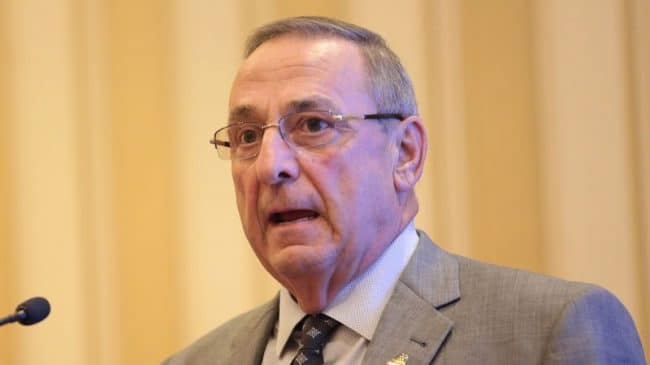Maine Gov. Paul LePage recently vetoed a bill that would raise the minimum age for purchasing tobacco and e-cigarettes from 18 to 21. The bill to raise the age passed the state legislature overwhelmingly, but those lawmakers should reconsider their positions and let the veto stand.
“I’m not going to strap a gun to their shoulder and go fight a war if they can’t go buy cigarettes,” LePage said in defense of his veto. “I’ll tell you, this is just sinful, it is absolutely sinful, and I believe that at 18 they are mature enough to make a decision and I’m tired of living in a society where we social engineer our lives.”
The governor is right. There’s a growing national trend of not trusting or allowing kids to grow up. At the age of 18, Maine’s residents can vote, get married, buy firearms and take out hundreds of thousands of dollars in student debt.
This proposal attempts to solve a problem that doesn’t exist. Sure the “if it saves just one life” or “it’s for the kids” has had way too much success convincing legislators to embrace silly ideas, but the problem of teen smoking has become less and less of a problem in recent years. Teen smoking has been on a steady decline. In fact, the University of Michigan’s “Monitoring the Future” survey indicates that teen smoking rates are lower now than at any time in the 42 years since the National Institute of Drug Abuse began sponsoring the survey. Data recently released by the U.S. Centers for Disease Control finds middle and high school students’ experimentation with e-cigarettes and hookah are on the decline as well.
A certain percentage of teens will always experiment with risky behaviors. Some experiment with smoking, drinking, marijuana and other drugs. Of course, we want to reasonably minimize dangers to which teens are exposed but they are already choosing to smoke in lower and lower numbers. And, despite claims from the bill’s proponents, no one has demonstrated that raising the tobacco age for young adults will actually even reduce smoking by minors.
A bill similar to the one passed by the Maine legislature has been rejected by several other states. In Texas, where a comparable bill was defeated, the fiscal analysis estimated that two-thirds of young adult smokers, ages 18-20, would ignore the law. Creating a law that deliberately targets young adults — many of whom will ignore it — creates an unhealthy environment where police selectively enforce the law. Do state lawmakers want law enforcement officers spending resources rounding up young adults who smoke?
The police should have better things to do and this search for 18 and 19-year-old smokers will likely end up targeting poor, minority communities — just as the war on drugs has. Demographic surveys find poor and less educated people tend to smoke more frequently than those who have higher incomes and are more educated. If young, poor and less educated adults are targeted in the enforcement of this bill, it will create friction between communities and police.
If the legislature overrides LePage’s veto, Maine would become the fourth state to enact the change. New Jersey Gov. Chris Christie signed a similar bill into law last week. “I like Chris Christie,” said Gov. LePage. “But this is one area where we would separate on policy because I don’t believe social engineering our society is going to create a good society.”
Gov. LePage was right to veto the bill and the legislature shouldn’t try to override it. Teen smoking has steadily declined and is at historically low rates. This proposal causes more problems than it solves and the legislature should follow the governor’s lead.
Brian Fojtik is a senior fellow with Reason Foundation.

